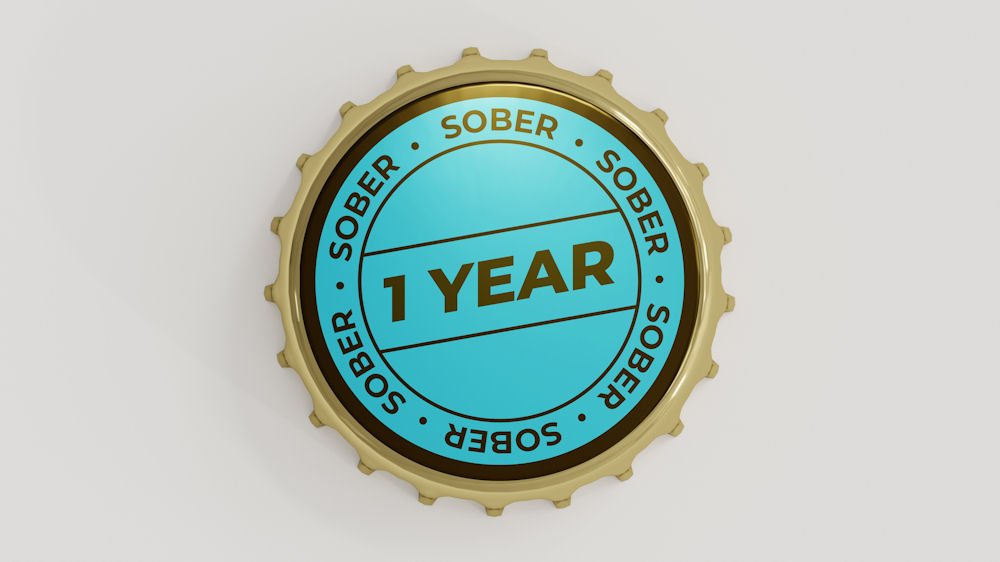Motivation is hard; it takes a lot of effort to find it. Even when a person does find it, it can be difficult to clearly define one’s goals without getting overwhelmed. This is why it’s imperative to monitor progress in recovery. Marking sobriety milestones is a great way to stay motivated during early recovery. These milestones serve as powerful reminders of personal perseverance; it could be as small as the first week without alcohol, or as big as three months without illicit drugs.
Either way, recognizing milestones, no matter how big or small, is imperative to the process of treatment. These moments provide opportunities for reflection, growth, and establishing a stronger foundation for a healthier life.

Embarking on the first year of sobriety is a profound journey filled with numerous milestones and self-reflection. During this period, each sober day feels like a small victory and can lead to rather large achievements. The initial challenge typically involves navigating social situations without the crutch of alcohol. However, in time, these hurdles will become opportunities to forge deeper, more authentic connections.
When a person is sober for a year, their physical health will see significant improvements. This could be as simple as clearer skin to increased energy levels. Ultimately, this reaffirms the benefits of a sober lifestyle. Emotionally, those in their first year of recovery rediscover their sense of self. The culmination of these milestones, both big and small, stands as a testament to an individual’s perseverance.
The first year of sobriety is significant for several reasons. It marks a crucial period of adjustment where people move from dependence to independence; they begin learning to navigate life without the crutch of substances. During the transformative process that is recovery, many experience substantial personal growth in the first year; they learn more about themselves and confront the underlying issues that may have led to their addiction. Establishing new routines and healthy coping mechanisms becomes paramount, creating a solid foundation for long-term recovery.
Additionally, the first year of recovery is often when the most intense cravings and temptations occur; this makes it a vital time for building resilience and fostering a strong support network. Celebrating this milestone is a powerful reminder of one's capability to overcome adversity and embrace a healthier, more fulfilling lifestyle.
The first year of sobriety is often met with numerous challenges that can test an individual's strength and commitment to getting better. One of the primary hurdles is dealing with physical withdrawal symptoms. Physical withdrawal symptoms can range from mild discomfort to severe, depending on the substance and duration of use. Additionally, emotional and psychological challenges such as anxiety, depression, and mood swings are common; this is because the brain adjusts to functioning without the influence of substances.
Social challenges will also become prevalent, especially as time goes on; individuals may need to distance themselves from friends or environments that encourage substance use. This is perhaps one of the hardest things about the first year of recovery; it leads to feelings of isolation and loneliness, which is only amplified when accepting the fact that an addiction exists.
Rebuilding life skills and routines in the absence of substance use requires significant effort and can initially feel overwhelming. Despite these difficulties, support from therapy, peer support groups, and loved ones is imperative; it can play a crucial role in navigating the first year of sobriety successfully.
Celebrating milestones in the first year of sobriety goes a long way in the recovery journey. Each milestone, no matter how small, represents a significant achievement; it’s a testament to one's perseverance and commitment to a sober, more stable life. These celebrations provide an opportunity to reflect on the progress made, acknowledge the challenges overcome, and reinforce the decision to stay sober.
Marking milestones in recovery can involve personal rewards, sharing accomplishments with supportive friends and family, or participating in recovery community events. Such recognition not only boosts morale but also strengthens the resolve to continue on this empowering path. Needless to say, celebrating milestones in recovery is imperative to successful long-term stability.
Making progress in recovery involves a combination of strategies that address both the physical and mental aspects of healing. For starters, it is important to establish a supportive environment by surrounding yourself with positive influences. This could include friends, family, and support groups. Secondly, regularly attending therapy sessions can provide professional guidance and coping mechanisms. Setting realistic and achievable goals can help maintain motivation and track progress over time.
Additionally, adopting a healthy lifestyle, which includes proper nutrition, regular exercise, and sufficient sleep, contributes significantly to overall well-being. It’s also important to practice patience and self-compassion; recovery is a gradual process and setbacks are a natural part of the journey.
SMART goals are a framework designed to guide setting achievable and effective objectives. The acronym SMART stands for Specific, Measurable, Achievable, Relevant, and Time-bound. Being Specific means that a goal should be clear and precise, leaving no room for ambiguity. Measurable goals have criteria that allow for tracking progress and assessing when the goal is accomplished. Achievable implies that the goal is realistic and attainable within the resource constraints available. Relevant goals align with broader business objectives or personal aspirations, ensuring that they are meaningful. Lastly, Time-bound goals have a defined deadline, providing a sense of urgency and prompting timely action. Together, these letters form a structure for setting goals that can lead to successful and tangible outcomes.
There are many examples of how one could use SMART goals in recovery. SMART goals for recovery may include the following:
Some tips for those starting their first year of sobriety may include the following:
If you’re still struggling to achieve your sobriety milestones or setting achievable recovery goals, it’s imperative to reassess your approach and seek support. Start by evaluating whether your goals are realistic and achievable within the timeframe you’ve set. It may be beneficial to differentiate between long-term goals and short-term goals, aka more manageable steps. Don’t hesitate to reach out to healthcare professionals, therapists, or support groups for guidance and encouragement. Sometimes, a fresh perspective can illuminate new strategies and provide the motivation needed to continue pushing forward.

At Golden Gate Recovery, we are committed to helping you achieve lasting sobriety and a healthier, more fulfilling life. Our comprehensive treatment programs are designed to address the underlying issues that contribute to substance abuse. By focusing on long-term recovery, we provide you with the tools and support necessary to maintain sobriety well beyond the duration of our programs. If you or a loved one would like to find out more, you can contact us here.achievable
Get confidential help! Call Us Now for:

Golden Gate Recovery is a grass roots organization created by men in long term recovery with a simple mission: to continue strengthening our therapeutic and peer led community toward the goal of long term recovery for each client.